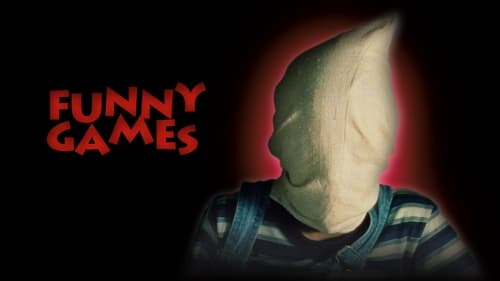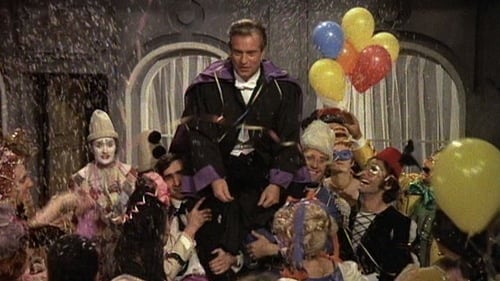Wolfgang Glück
Birth : 1929-09-29, Vienna, Austria

Director
Twenty-eight well-known filmmakers living and working in Austria were invited by WIENER MOZARTJAHR 2006, to produce associative miniatures on Mozart. Requirement: they had to be one-minute artistic short films. The directors come from a whole range of different backgrounds, ranging from animated, experimental and short film to documentaries and feature films. The result is a multi-facetted sampler of diverse formal and contextual positions with regard to Mozart’s person and his influence on today’s society, art and culture. The contributions run the gamut from experimental-conceptual statements through socio-critical and documentary observations to pithy short feature films.

Robert
Two psychotic young men take a mother, father, and son hostage in their vacation cabin and force them to play sadistic "games" with one another for their own amusement.

Screenplay
Jan, a freelance journalist, and Sabine, the mother of his two children and a textile designer, have no money. Sabine is abandoned by her husband and then gets caught up in the bureaucracy.
A sober psychogram of a woman who is fighting and hoping for her life and everyday life.

Director
Jan, a freelance journalist, and Sabine, the mother of his two children and a textile designer, have no money. Sabine is abandoned by her husband and then gets caught up in the bureaucracy.
A sober psychogram of a woman who is fighting and hoping for her life and everyday life.

Director

Director

Director

Writer
The film presents the political events surrounding the Anschluss in March of 1938 through the lives of Carola Hell, a popular young actress at the prestigious Theater in der Josefstadt, and Martin Hofmann, the Jewish journalist she plans to marry. When we encounter the couple in the lovely springtime weather their future is full of promise. They are determined to stay clear of politics. Yet in the climate of the time, nobody of her prominence or his religion can remain apolitical. Although Martin's journalist friend, Drechsler, calls to inform them that the Nazis plan to take over Austria soon, they concentrate on their work and their private happiness and dismiss the warnings.

Director
The film presents the political events surrounding the Anschluss in March of 1938 through the lives of Carola Hell, a popular young actress at the prestigious Theater in der Josefstadt, and Martin Hofmann, the Jewish journalist she plans to marry. When we encounter the couple in the lovely springtime weather their future is full of promise. They are determined to stay clear of politics. Yet in the climate of the time, nobody of her prominence or his religion can remain apolitical. Although Martin's journalist friend, Drechsler, calls to inform them that the Nazis plan to take over Austria soon, they concentrate on their work and their private happiness and dismiss the warnings.

Director

Writer
Kurt Gerber is attending his final class and gets into trouble with the math professor, a frustrated self-assured petty bourgeois sadist. The duel ends in catastrophe.

Director
Kurt Gerber is attending his final class and gets into trouble with the math professor, a frustrated self-assured petty bourgeois sadist. The duel ends in catastrophe.

Director

Director

Director

Director

Director

Director

Director

Director

Screenplay
Der Graf von Luxemburg (The Count of Luxembourg) is an operetta in three acts by Franz Lehár to a German libretto by Alfred Willner, Robert Bodanzky, and Leo Stein. A Viennese take on bohemian life in Paris at the beginning of the 20th century, the story revolves around an impoverished aristocrat and a glamorous opera singer who have entered into a sham marriage without ever seeing each other and later fall in love at first sight, unaware that they are already husband and wife.

Director
Der Graf von Luxemburg (The Count of Luxembourg) is an operetta in three acts by Franz Lehár to a German libretto by Alfred Willner, Robert Bodanzky, and Leo Stein. A Viennese take on bohemian life in Paris at the beginning of the 20th century, the story revolves around an impoverished aristocrat and a glamorous opera singer who have entered into a sham marriage without ever seeing each other and later fall in love at first sight, unaware that they are already husband and wife.

Director

Teleplay
After a frank confession by his wife, a doctor is called to see a dying patient. The cause of the night brings him to meet an old friend, a pianist, who tells him of a mysterious ball where he is due to perform. Based on the book "Traumnovelle" ("Rhapsody: A Dream Novel") by Arthur Schnitzler.

Director
After a frank confession by his wife, a doctor is called to see a dying patient. The cause of the night brings him to meet an old friend, a pianist, who tells him of a mysterious ball where he is due to perform. Based on the book "Traumnovelle" ("Rhapsody: A Dream Novel") by Arthur Schnitzler.

Director

Director

Director

Director

Director

Director

Director

Director

Director

Director

Director

Director

Director

Director

Director

Director

Director
Eva wants to become a singer and ends up in the Mambo bar, where behind the scenes is traded with other goods than talents.

Writer

Director

Director

Director

Director

Assistant Director

Writer

Assistant Director
Vienna, 1957: Head waiters Gustav (Paul Hörbiger) and Franz (Hans Moser) are working for the stinted Cafétier Panigl and are close friiends despite of their different characters. Franz is happily married and a good family father, Gustav, a relaxed charmer, is living a calm single life. Overnight both of them become jobless, because Panigl decided to sell his Café which was not successful anymore. Right in this moment, Franz' brother is sending 20.000 Dollar from USA. Money, he once peculated and now wants to pay back.. Gustav and Franz are buying half of the Café for each from the unexpected money. One half they develop as the modern Musicbox-Espresso «Pinguin», the other half as a traditional old style Vienna Café . Misunderstandings between guests and generations are inevitable and stretch the long term friendship of the two waiters.













